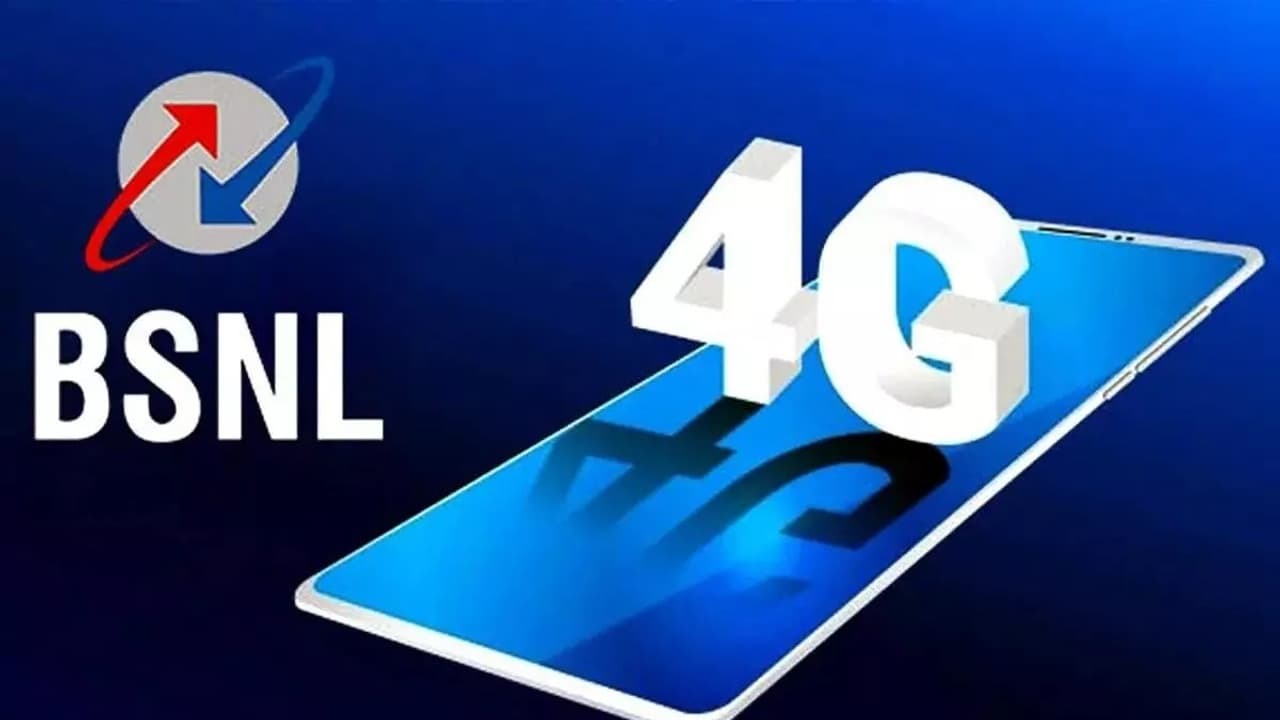 Image Source : Asianet Newsable
Image Source : Asianet Newsable
State-owned telecom giant Bharat Sanchar Nigam Limited (BSNL) has announced an ambitious plan to boost its 4G network by adding between 300,000 and 400,000 new 4G sites across India. This expansion aims to enhance coverage and service quality in both urban and rural regions while emphasizing affordable pricing rather than increasing tariffs to grow its subscriber base.
Key Highlights of BSNL’s 4G Expansion Strategy
BSNL intends to dramatically scale up its 4G infrastructure with approximately 3 to 4 lakh additional sites focused on increasing network reach and capacity.
The operator plans to focus on affordability and accessible data plans to attract and retain customers, diverging from the industry trend of tariff hikes.
This rollout aligns with BSNL’s commitment to extending telecom services to remote and underserved areas.
Capital expenditure for the network expansion will be substantial, signaling confidence in future demand for 4G and digital connectivity.
BSNL will also leverage existing infrastructure and 5G-ready technology to upgrade site capabilities efficiently.
Rationale Behind Prioritizing Affordability
Customers in India remain highly price-sensitive, especially in rural and semi-urban markets where data demand is growing.
BSNL’s strategy targets increasing volume rather than increasing average revenue per user (ARPU).
Maintaining competitive tariffs will help BSNL boost broadband penetration, digital inclusion, and bridge the urban-rural digital divide.
Rather than risking subscriber churn with tariff hikes, BSNL aims to strengthen loyalty with value-for-money offerings.
Network Upgrade and Technology Deployment
The expansion will involve upgrading 3G sites to 4G and deploying new 4G sites equipped with LTE technology.
BSNL plans to use a mix of greenfield (new) and brownfield (upgraded) sites to optimize rollout speed and cost.
The rollout strategy will prioritize high-demand corridors while addressing connectivity gaps in tribal and hilly regions.
BSNL foresees synergy with emerging digital government initiatives and smart city projects, leveraging enhanced connectivity.
Competitive Landscape and Market Positioning
BSNL faces aggressive competition from private telecom operators heavily invested in 4G and 5G networks.
The company’s focus on affordability may strengthen its appeal among cost-conscious consumers and government segments.
Expansion of 4G services is crucial for BSNL to remain relevant and competitive in a landscape rapidly moving towards 5G.
Government backing and recent financial restructuring have provided BSNL the resources and mandate to pursue this expansion.
Potential Challenges and Mitigation Measures
Key risks include capital constraints, vendor ecosystem delays, and competition-induced pressure on margins.
BSNL is prioritizing efficient project management, vendor partnerships, and phased rollout to ensure smooth execution.
The company is also exploring spectrum optimization and infrastructure sharing models to reduce costs.
Impact on Customers and Digital Ecosystem
Improved 4G coverage will enable faster internet speeds and better service reliability for millions of Indians.
BSNL’s affordable offerings can accelerate the adoption of digital services including e-education, telemedicine, and e-governance.
Enhanced telecom infrastructure is vital for empowering rural entrepreneurship and social connectivity.
Outlook for BSNL’s Growth Trajectory
The large-scale 4G expansion is expected to stabilize subscriber base and improve revenue growth over medium term.
Integration with future 5G upgrades and digital services portfolio will create new revenue opportunities.
BSNL aims to position itself as a reliable, affordable connectivity provider deeply embedded in the nation’s digital transformation.
Conclusion: A Bold Push For Network Expansion Backed By Affordability
BSNL’s plan to add 3-4 lakh new 4G sites demonstrates a significant commitment to transforming India’s telecom landscape through expansive coverage and budget-friendly pricing. By prioritizing accessibility over tariff hikes, BSNL seeks to bridge connectivity gaps, drive digital inclusion, and secure its place as a vital player in India’s evolving communications ecosystem.
Sources: Economic Times, Telecom Talk, Moneycontrol, LiveMint
Advertisement
Advertisement







